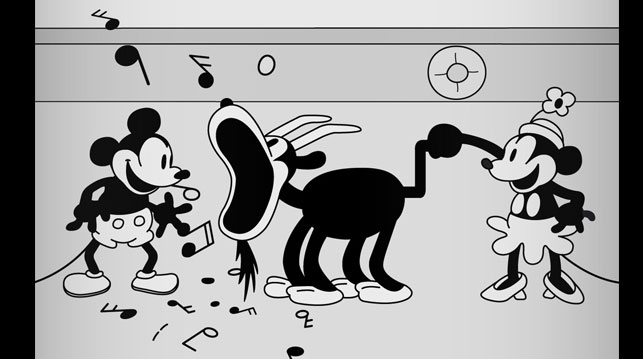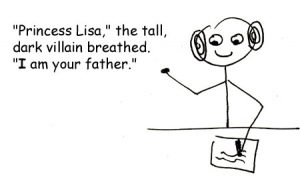
We’ve all had it drilled into our heads that we have to cite and reference everything in academic papers to avoid plagiarism.
But fiction is different, isn’t it? Because it’s all made up, we can quote, cite, paraphrase, name-check, and reference rampantly, right?
Wrong.
When we put word to page, our text immediately goes under copyright. Our writing belongs to us and no one else. That’s true for everyone, which means we must be careful when borrowing from someone else’s work, whether it’s a song lyric, a brand, or a character.
The use of someone else’s ideas in our work is covered by a principle called “fair use.” In essence, this states that if we’re using copyrighted material for a “transformative purpose,” we can do some limited borrowing. Whether our work adequately “transforms” the original into something new and whether our use is limited enough, is a judgment call. But it’s better to have that call never come up, so we must play it safe even in fiction.
Get a free sample proofread and edit for your document.
Two professional proofreaders will proofread and edit your document.
Song Lyrics
Song lyrics are the area most likely to get a fiction writer in hot water. You hear songs on the radio all the time, and they often express exactly the feeling you’re trying to get across while conveying a sense of time and place. They’re perfect!
They’re also copyrighted. Even a few words or a line or two from a song are protected; you can’t use them without legal permission. In some cases, if it’s an underground lyricist you know personally, you can just get a quick written release. If you plan to open each chapter with a few lines from the Beatles, you’re in trouble. Most lyricists don’t control the rights to their own work. That responsibility lies with mega-corporations, who are eager to milk extra money out of their licenses.
To quote song lyrics, you’ll have to track down the music publisher. (The Internet is great for this.) You’ll go to their website and send in a request detailing why you want to use the lyrics, how much you want to use, and how many copies of your finished work you expect to create. The company will respond with a dollar figure.
Whatever you do, don’t skip this. It’ll cost you a lot more in court fees and fines to ask “forgiveness” than to pay $50+ to get permission.
Can’t afford the licensing fee? All isn’t lost. Try writing around the lyrics; reference the band, the song, or that great concert without actually quoting the song itself.
Brands
Another way to evoke an image is to mention a specific brand or item. A ‘60s secretary would check her Rolodex and use the mimeograph, whereas a modern administrative assistant might man his desk armed with three iPhones. (A good proofreading service helps you know when such issues pop up.) But there is risk even here; brand names are under trademark, which means their use is also limited.
Referencing a brand briefly in a story is usually OK, although you’re always better off using a generic term if possible, like swapping “smartphone” for “iPhone.” If you must use a trademarked brand, make sure your use is brief, essential to the plot, and preferably flattering. Sure, The Devil Wears Prada, but Prada may also have a tendency to sue if they’re portrayed negatively, and although criticism and commentary count as fair use, it’s another vague, and thus dangerous, area.
Characters
Characters are tricky too. Most popular or iconic characters are trademarked, and the companies that hold the rights don’t let people use them for free. A single reference to Batman in your novel—“He was the Batman of the kitchen, always making something new and armed with a heck of a tool belt”—will probably slide as fair use. But writing about Batman as a walking, talking character and commercially marketing that book without DC Comics’ permission is just asking for trouble.
 Fanfic writers? Yeah, this pertains to you. There’s a reason Fifty Shades of Grey (which started as Twilight fanfic) had to be rewritten with different characters to be commercially published. You can probably skate by if you’re sharing your fanfic for free, but the instant you try to profit from it, the Lawsuit Gods will be after you with whips and chains of their own.
Fanfic writers? Yeah, this pertains to you. There’s a reason Fifty Shades of Grey (which started as Twilight fanfic) had to be rewritten with different characters to be commercially published. You can probably skate by if you’re sharing your fanfic for free, but the instant you try to profit from it, the Lawsuit Gods will be after you with whips and chains of their own.
Now, there’s a chance you could get permission to write a tie-in novel or other adaptation of a favorite work. Take a chance and ask the rights holder if they have any series in the works, or whether they license character rights. You might find yourself writing the next Star Wars novel or doing a Warhammer tie-in.
No matter what, better safe than sorry. If you have to ask yourself, “Is this fair use?” take a step back, reevaluate, and see if you can figure out a creative way to write around the problem. It’s a great skill-builder, and anything that keeps you out of court and in your comfort zone writing is a good thing!
Kate S.
Get a free sample proofread and edit for your document.
Two professional proofreaders will proofread and edit your document.
Get a free sample proofread and edit for your document.
Two professional proofreaders will proofread and edit your document.
We will get your free sample back in three to six hours!